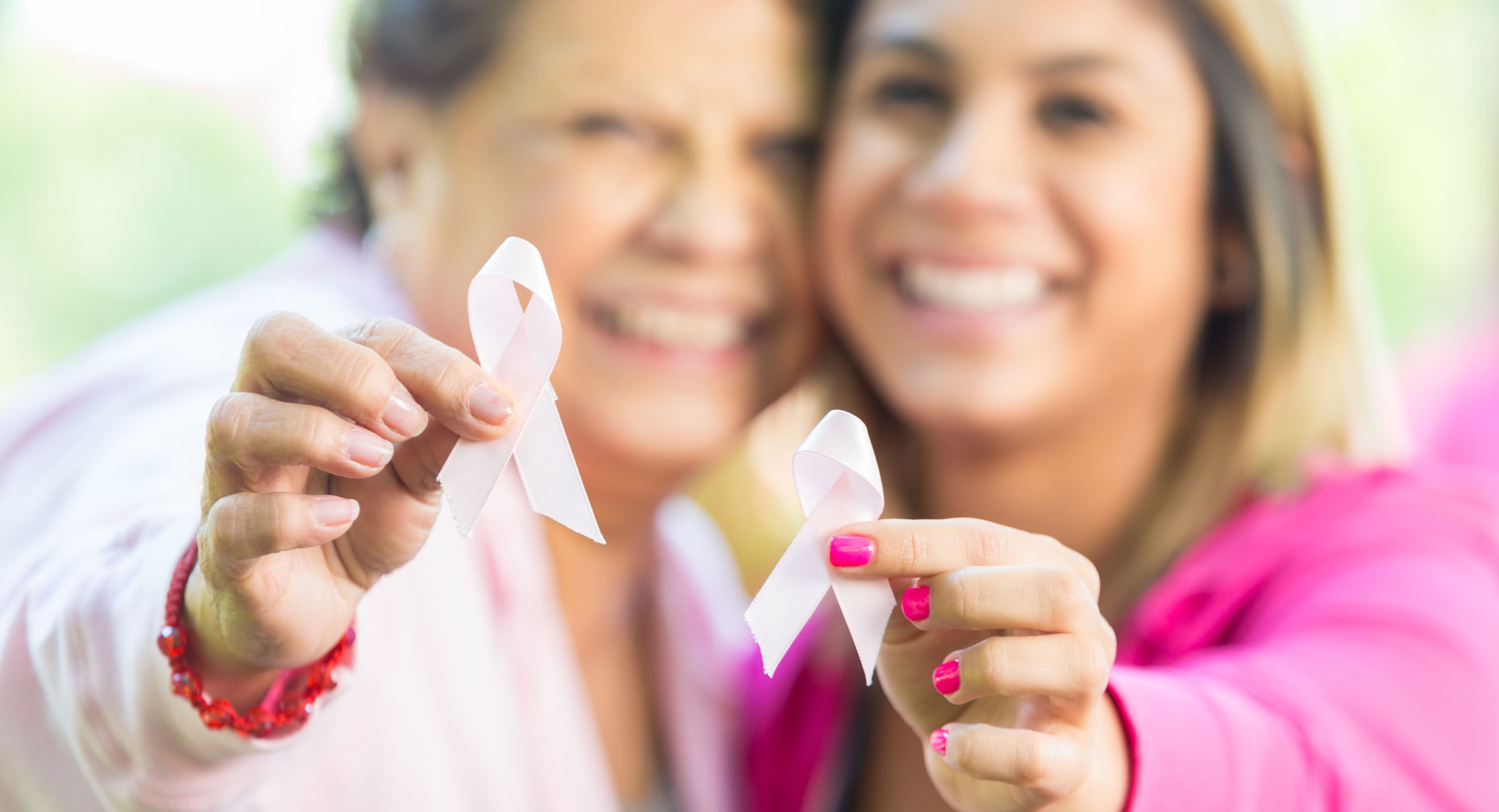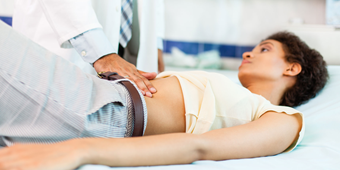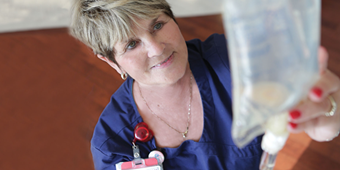- Breast Cancer
- Breast Health
- Cancer
- Cancer Diagnosis
- Gynecologic Cancer
- Health Topics
- Uniquely Female
Am I At Risk For Breast Cancer?

Answer a few questions and we'll provide you with a list of primary care providers that best fit your needs.
None of us likes to think about breast cancer and whether it could come into our life. But as with so many health issues, knowledge is power, so it’s smart to know your risk level.
Risk Factors For Breast Cancer
Some risk factors for breast cancer can’t be changed:
- Gender. Breast cancer occurs nearly 100 times more often in women than in men.
- Race or ethnicity. White women develop breast cancer slightly more often than African-American women.
- Aging. Two out of three women with invasive cancer are diagnosed after age 55.
- Personal history of breast cancer
- Previous breast irradiation. That is, radiation treatment, not routine X-rays.
- Family history and genetic factors. Having a mother, sister, or daughter with breast cancer or ovarian cancer (or multiple family members on either your mother’s or father’s side with breast or ovarian cancer). About 20 to 20 percent of women with breast cancer have a family history of the disease.
- Having a male relative diagnosed with breast cancer. You should be evaluated for hereditary susceptibility to breast cancer if you have a first-degree (parents, siblings, and children) or second-degree (grandparents, grandchildren, uncles, aunts, nephews, and nieces) relative with male breast cancer. This can increase cancer risk.
- Having a close relative diagnosed with breast cancer at age 50 or younger. The younger a person is when they get breast cancer, the more likely it is to be inherited.
- Having Ashkenazi Jewish ancestry. In this group of Eastern European and Russian Jewish individuals, there is a higher incidence of hereditary breast cancer.
- Some benign breast diseases
- Dense breast tissue
- Diethylstilbestrol (DES) exposure. Women who took this drug while pregnant (to lower the chance of miscarriage) are at higher risk. DES was given to women in the 1940s-1960s.
- Early menstrual periods, starting before age 12
- Late menopause, after age 55
But there are also lifestyle-related risk factors for breast cancer:
- Not having children, or having your first after age 30, may slightly increase your risk
- Recent use (within 10 years) of oral contraceptives
- Physical inactivity
- More than one alcoholic drink a day
- Long-term, postmenopausal use of combined estrogen and progestin (menopausal hormone therapy)
- Weight gain and obesity, especially after menopause
- Breastfeeding may slightly lower the risk, especially if it’s done for at least a year.
“Depending on what your risks are and what the elevation is, there are things to help deal with those risks,” says breast surgeon Thomas Heck, MD. “We can do everything from, perhaps, increasing monitoring (imaging and breast examinations) to offering risk-reducing medications.”
Dr. Heck explains that breast cancer symptoms are similar for men and women, though men have less than 1 percent of all breast cancer cases.
Click play to watch the video or read video transcript.
Assess Your Risk Level
There are breast risk assessment tools online that use knowledge of your family history to assess your personal risk level. But a discussion with your physician or health care provider is the best way to be proactive about dealing with your risk for breast cancer.
“Depending on what your risks are and what the elevation is, there are things to help deal with those risks,” says Thomas Heck, MD.
Some women will want even more knowledge. “For women who have a close relative who’s had breast or ovarian cancer, genetic testing is available to see if they have an inherited mutation in the BRCA1 or BRCA2 gene or other genetic mutations that can increase the chances for breast cancer to occur,” says Dr. Heck.
Women with one of these mutations have up to an 80 percent chance of getting breast cancer.
Women of Ashkenazi Jewish ancestry, mentioned above, are more likely than women in the general population to have a BRCA1 or BRCA2 mutation – 24 in every 800 individuals, compared to 1 in 800 women in the general population.
While none of us like to think about breast cancer, knowing your risks is an important step to being prepared and knowing how best to protect yourself from the disease. Learn more about your personal risk level for breast cancer by talking to your doctor or health care provider.
Your Next Step
If you have a condition that puts you at an increased risk of breast cancer, there are steps you should take. Dr. Heck explains:
Click play to watch the video or read video transcript.
Answer a few questions and we'll provide you with a list of primary care providers that best fit your needs.
Source: Thomas Heck, MD, Gem City Surgical Associates, Surgeons; American Cancer Society; Centers for Disease Control and Prevention







